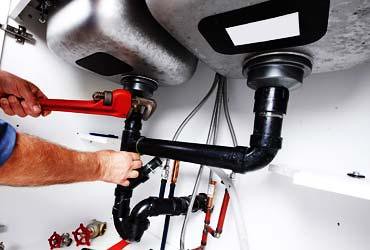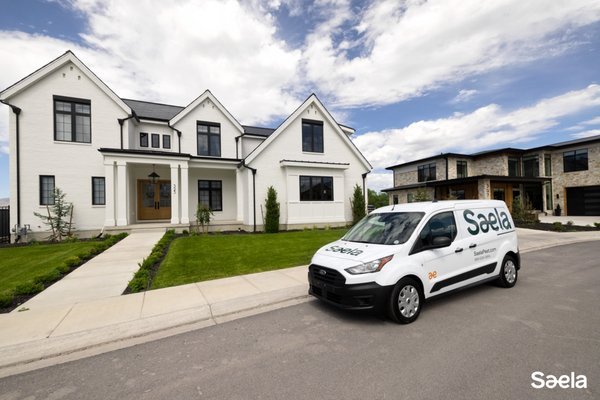A plumbing emergency can strike unexpectedly, causing panic and potential damage to your home. From burst pipes to overflowing toilets, these situations require quick action to minimize the impact on your property and prevent further complications. We will discuss the measures to take during a plumbing emergency to shield your home and ensure your safety.
Assess the Situation
1. Stay Calm
In a plumbing emergency, it’s crucial to remain calm. Panic can lead to hasty decisions that may worsen the situation. Take a deep breath and focus on addressing the issue step by step.
2. Identify the Source
Quickly pinpoint the source of the problem. If it’s a burst pipe, locate the water shut-off valve that controls the affected region. If it’s a running toilet or overflowing sink, try to stop the water flow by turning off the water supply to that fixture.
3. Evaluate the Severity
Assess the severity of the situation. Is the water leak minor, or is it causing significant flooding? Comprehending the extent of the damage will assist you in prioritizing your actions.
Immediate Steps to Take
1. Turn Off the Water
If you’re dealing with a burst pipe, turn off the water supply to the affected area or your entire home if necessary. The main water shut-off valve is generally located near the water meter. Turning off the water will prevent further flooding and damage.
2. Contain the Water
Place buckets, towels, or absorbent materials around the affected area to contain and soak up excess water. This will help stem water from spreading to other parts of your home and causing additional damage.
3. Open Drains and Faucets
Open faucets and drains in the influenced area to relieve pressure and allow excess water to flow out. This can help reduce the risk of further water damage and flooding.
4. Use Temporary Fixes
If you have the necessary tools and materials, use temporary fixes to stem the flow of water. For minor pipe leaks, you can use plumbing tape, pipe clamps, or rubber patches to provide a temporary seal until a professional plumber can make a permanent repair.
5. Contact a Professional Plumber
In most plumbing emergencies, it’s advisable to contact a professional plumber as soon as possible. Emergency plumbers are furnished to handle urgent situations and can deliver expert solutions to address the problem safely and effectively.
Preventing Further Damage
1. Move Valuables
If the plumbing emergency has caused flooding, shift furniture, electronics, and valuables away from the affected area to prevent them from getting damaged.
2. Turn Off Electricity
If water has arrived into contact with electrical outlets or appliances, turn off the electricity to the affected area to sidestep the risk of electrical shock.
3. Ventilation
Promote airflow and ventilation by opening windows and doors. This can help stem mold growth and aid in drying out the affected area.
4. Document the Damage
Take photos or videos of the damage for insurance purposes. This documentation can be useful when filing a claim for repairs or replacements.
Knowing When to Seek Professional Help
While you can immediately mitigate the damage during a plumbing emergency, some situations require professional expertise. Here are instances when you should seek the help of a licensed plumber:
- Burst or severely damaged pipes.
- Sewer line backups or blockages.
- Gas leaks or foul odors indicate potential gas leaks.
- Water heater malfunctions.
- Complex installations or repairs.
Being Prepared for Future Emergencies
The best way to handle plumbing emergencies is to be prepared for them in advance. Here are some steps you can take to be ready for unexpected situations:
- Know Your Plumbing System: Familiarize yourself with the layout of your plumbing system, including the location of shut-off valves and important pipes.
- Emergency Kit: Keep a basic plumbing emergency kit that includes plumbing tape, pipe clamps, wrenches, and other essential tools.
- Contact Information: Have the contact information of local emergency plumbers readily available.
- Regular Maintenance: Perform regular maintenance checks on your plumbing system to catch potential issues before they escalate into emergencies.
Plumbing emergencies demand quick thinking, swift action, and sometimes the expertise of professional plumbers. By staying calm, taking immediate steps to mitigate damage, and comprehending when to seek help, you can effectively handle plumbing emergencies and minimize the effect on your home and belongings. Being prepared and knowledgeable about your plumbing system can significantly affect how well you navigate and manage these unexpected situations. Your composed response and adherence to proper procedures can mitigate substantial potential damage in plumbing emergencies. Remember, your quick actions and the guidance of professionals can turn a stressful situation into a manageable challenge, ensuring the safety of your home and loved ones. If you are looking for a professional plumbing company, learn more about Sarkinen Plumbing on their website.



